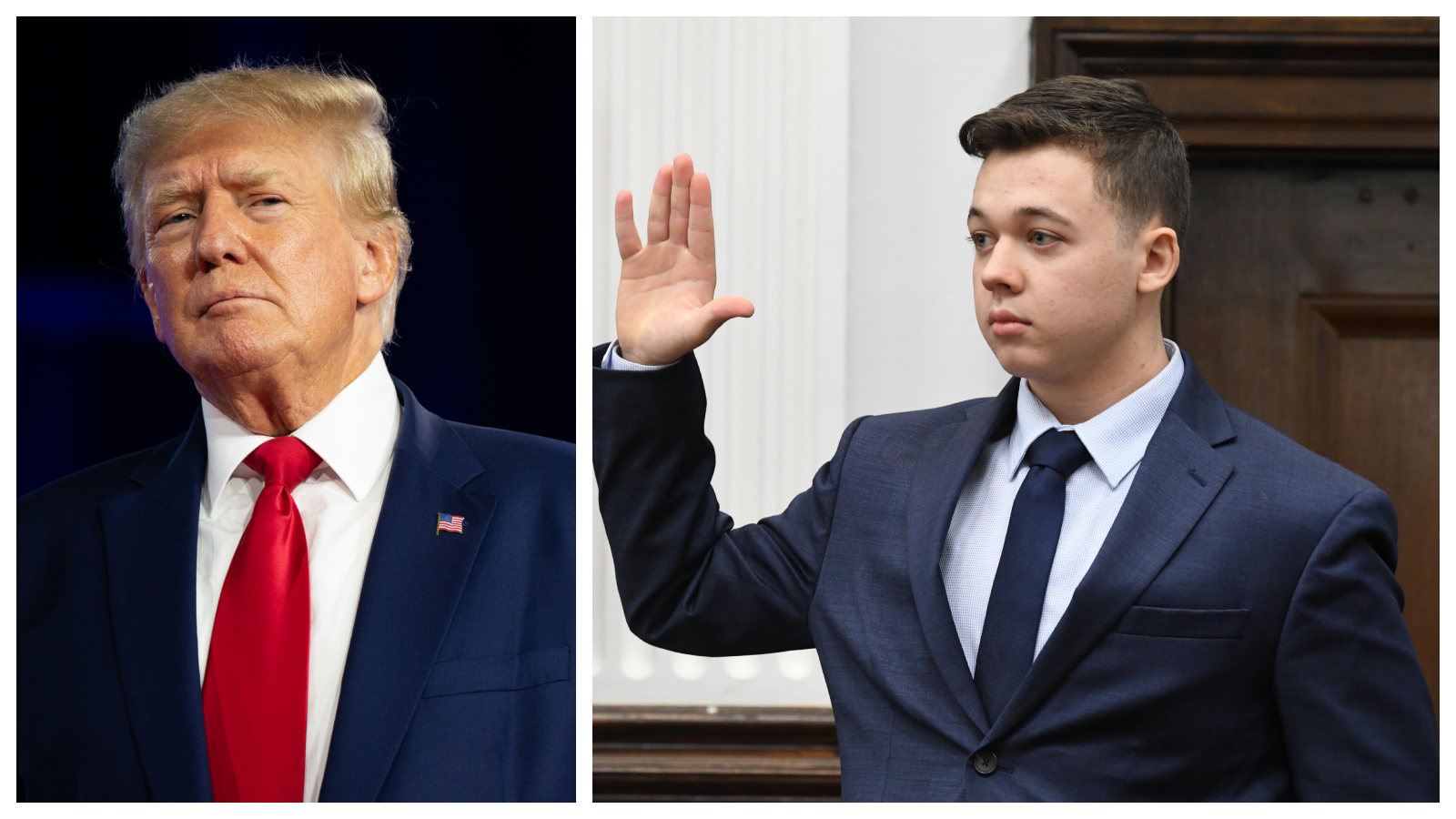In a recent development that has captured widespread attention, Kyle Rittenhouse, whose name became synonymous with a highly publicized legal battle in 2021, has found himself at the center of a new controversy. This time, however, the focus is not on the courtroom but on his political stance and public endorsements.
Rittenhouse, who was acquitted of murder charges in 2021 after shooting and wounding three individuals during a tumultuous night of rioting in Wisconsin, has recently caused a stir by voicing his disapproval of former President Donald Trump. His initial announcement came in the form of a video posted on social media on Thursday, where he revealed that he could not support Trump in the upcoming election. Rittenhouse expressed dissatisfaction with Trump’s position on certain gun regulations, stating that he would instead cast his vote for Sen. Rand Paul (R-Ky.), a decision that reflects his commitment to Second Amendment rights.
This public declaration by Rittenhouse quickly became a lightning rod for criticism. Within hours of the video’s release, social media platforms were abuzz with reactions. Many commentators were quick to point out the irony in Rittenhouse’s stance, given that Trump and his supporters had been vocal advocates for him during his legal trials. The former president and his allies had rallied behind Rittenhouse, framing his actions as a legitimate defense against violent attacks during a period of intense national unrest.
Faced with a significant backlash, Rittenhouse’s position underwent a rapid transformation. In less than half a day after his initial statement, he posted another update on X (formerly Twitter), signaling a dramatic shift in his perspective. In this follow-up post, Rittenhouse disclosed that he had engaged in several in-depth discussions with Trump’s team, which led him to reassess his earlier stance. He now believed that Trump was the strongest advocate for gun owners and a crucial ally in defending Second Amendment rights. Acknowledging that his previous comments were misguided and unproductive, Rittenhouse expressed his full support for Trump and encouraged fellow gun owners to join him in endorsing the former president’s bid for re-election.
This about-face has not only stirred the political waters but also reignited discussions about Rittenhouse’s role as a public figure. His legal saga began in August 2020, during the George Floyd protests that erupted into widespread civil unrest. Rittenhouse, then a teenager, was involved in a highly publicized case where he faced charges of killing two men and injuring a third during the chaos. The jury ultimately found his actions to be a justified act of self-defense, a verdict that brought him both national attention and a following among certain political and social circles.
Since his acquittal, Rittenhouse has positioned himself as a prominent advocate for gun rights, using his platform to speak out on issues related to the Second Amendment. His unexpected criticism of Trump, therefore, seemed incongruent with his previously demonstrated political alignment, contributing to the intensity of the backlash he received. Many supporters of Trump felt betrayed by Rittenhouse’s initial decision and saw it as a disregard for the former president’s past support during a period of legal jeopardy for Rittenhouse.
The mixed reactions to Rittenhouse’s subsequent reversal highlight the polarized nature of contemporary political discourse. On one hand, there were those who appreciated Rittenhouse’s acknowledgment of his earlier misjudgment and welcomed his renewed support for Trump. Comments such as “Glad you came to your senses. Trump 2024. A vote for ANYONE else is a vote for gun-grabbing Kamala. Don’t let anyone take advantage of you” reflect a sentiment of relief and solidarity with Rittenhouse’s change of heart. On the other hand, some critics mocked the abruptness of his reversal, with one user remarking, “Bro didn’t even make it 12 hours lol,” while others expressed frustration with the contentious nature of the discourse surrounding Rittenhouse’s political decisions.
In this evolving narrative, Rittenhouse’s swift about-face underscores the volatile nature of political endorsements and the impact of public opinion. His experience highlights the intricate dynamics between personal beliefs, public support, and political strategy. As the election cycle progresses, Rittenhouse’s actions and statements will likely continue to attract scrutiny and debate, reflecting broader trends in how public figures navigate their political allegiances and respond to evolving circumstances.
